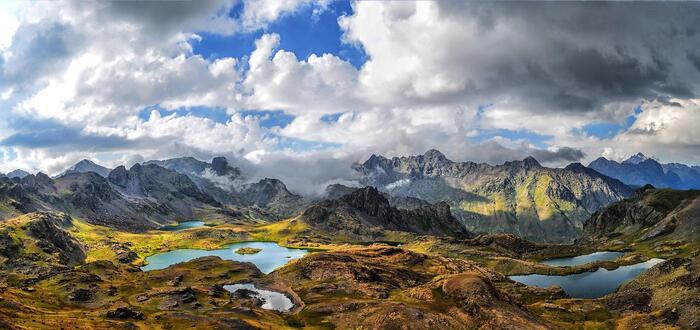Not just drought: the evaporation of nearly one and a half million lakes, natural and man-made, scattered around the world is accelerating.
Satellite data, collected from 1985 to 2018, indicates that it is about 15% higher than previously thought.
This was revealed by a study led by the US University of Texas A&M and published in the journal Nature Communications, which indicates how the loss of water due to evaporation can exceed that given by domestic and industrial use combined.
According to the authors of the study, the results obtained can help improve decision-making processes concerning the management of water basins, especially in the event of drought or growth in water demand due to population growth.
Natural and man-made lakes cover approximately five million square kilometers of the earth's surface and contain nearly 90% of the liquid surface water present on our planet.
Previous estimates of the amount of water lost were mainly based on evaporation rates, but these alone fail to account for the other dynamics involved: rising temperatures, more intense solar radiation caused by changes in cloud cover, the decrease of the parts covered by ice, etc.
Due to the importance of all these environmental factors, which can vary greatly for each lake, the researchers led by Gang Zhao independently calculated a more reliable measure of evaporation for each of the 1.42 million basins considered. using data collected by satellites from 1985 to 2018. “We found that long-term evaporation from lakes averages 1,500 cubic kilometers per year,” says Zhao, “15.4% more than previous estimates ".
The researchers also found that man-made reservoirs make a proportionately greater contribution to this evaporation (16%), despite their lower water storage capacity, which is 5%.









